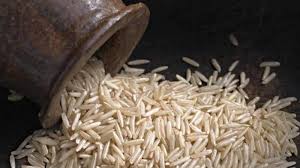In a groundbreaking development in the fight against vitamin B1 deficiency, researchers from the University of Geneva (UNIGE), ETH Zurich, and Taiwan’s National Chung Hsing University (NCHU) have achieved a significant breakthrough. Their collaborative efforts have resulted in a substantial increase in the vitamin B1 content of rice grains, a development that could have profound implications for public health, particularly in regions where rice is a dietary staple.
Vitamin B1, also known as thiamine, plays a crucial role in human health, particularly in the functioning of the nervous and cardiovascular systems. However, deficiencies are common in populations whose diets rely heavily on cereals like rice, which are naturally low in this essential micronutrient. The processing of rice, such as polishing, further diminishes its vitamin B1 content, exacerbating chronic deficiencies and contributing to widespread health issues.
Led by Professor Teresa Fitzpatrick from UNIGE’s Department of Plant Sciences, the research team focused on enhancing the vitamin B1 content specifically in the endosperm of rice grains. The endosperm is the primary source of nutrition in rice and constitutes the bulk of what is consumed.
Previous attempts at increasing vitamin B1 content in rice had targeted the leaves and bran, with limited success in boosting levels in the edible grain. However, by employing a targeted approach, the scientists successfully engineered rice lines that express a gene responsible for sequestering vitamin B1 in the endosperm tissues. This resulted in a significant increase in the vitamin B1 content of the rice grains without compromising agronomic yield.
The research, published in the Plant Biotechnology Journal, marks a significant milestone in the field of biofortification, offering a promising solution to a major public health challenge. The experimental crops, grown in both controlled glasshouse conditions and real-world field settings in Taiwan, demonstrated stable expression of the modified gene over several years, with no adverse effects on agronomic characteristics.
According to Wilhelm Gruissem, Professor Emeritus at ETH Zurich and Distinguished Chair Professor at NCHU, the successful field trials represent a crucial step towards the eventual cultivation of biofortified rice varieties rich in vitamin B1. A 300-gram serving of rice from these crops could provide around a third of the recommended daily intake of vitamin B1 for adults.
Despite the promising results, further regulatory steps will be necessary before biofortified rice varieties can be commercially cultivated. However, the potential impact of this research on global public health is undeniable, offering hope for addressing widespread vitamin B1 deficiencies in populations reliant on rice-based diets.












